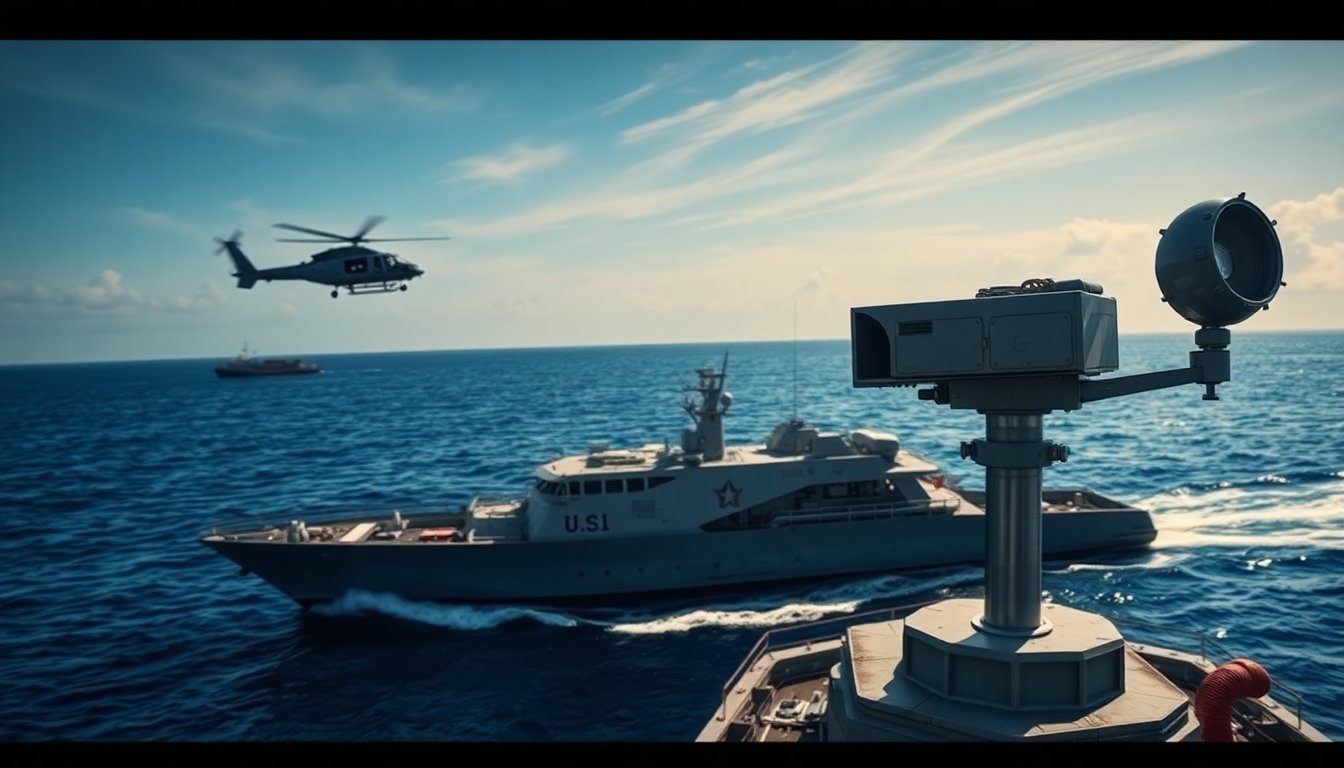Table of Contents
Report highlights links between Canadian technology and U.S. military actions
A report by the non-governmental organization Project Ploughshares reveals a concerning connection between Canadian-made technology and U.S. military operations in the Caribbean. These operations target Venezuelan vessels suspected of drug trafficking. The report indicates that a sophisticated camera system, the L3Harris WESCAM MX-Series, was used during these operations, raising significant human rights concerns and questions regarding the implications of arms exports.
Project Ploughshares, a peace research institute focused on international security and disarmament, has publicly released a report that calls for an investigation into the specifics of recent military actions. The report reveals that the U.S. military utilized the WESCAM MX-Series sensor to monitor vessels during two separate strikes reported in September. These actions were part of a broader campaign targeting alleged drug smuggling operations originating from Venezuela.
U.S. military operations and the role of Canadian technology
In the weeks leading up to this report, the U.S. military conducted a series of strikes in the Caribbean. President Donald Trump characterized these as essential actions against vessels operated by narcoterrorists. The operations have resulted in significant casualties, with reports indicating at least 21 individuals have died during these strikes, raising questions about the legality of these military actions.
Concerns have been raised by experts regarding potential violations of international laws, particularly in the areas of human rights and maritime regulations. Alexander Avina, a history professor at Arizona State University, pointed out that Canada’s actions could be interpreted as complicity in what some are labeling as war crimes due to its provision of technology utilized in these operations.
The implications of arms exports
In response to inquiries about the role of Canadian technology, Global Affairs Canada stated that it is actively monitoring the situation related to U.S. operations. A report from Project Ploughshares specifically highlighted that the WESCAM MX-Series systems played a crucial role in the execution of the initial strikes. Notably, distinct visual characteristics were observed in the footage released by the U.S. military.
A former member of the Canadian Forces, who requested anonymity due to confidentiality agreements, confirmed that the visual elements in the strike videos closely resemble those from previously documented MX-Series footage used in other military operations. Notably, these videos contain identifiable features, such as a central scale bar that helps operators estimate distances, which is essential for surveillance missions.
Legal and ethical concerns surrounding the strikes
The White House has characterized these military actions as acts of self-defense, claiming they comply with the laws of armed conflict. However, critics contend that the strikes lack a solid legal foundation, raising significant ethical questions. Michael Becker, an assistant professor specializing in international human rights law, stated that the nature of these operations effectively provides a ‘license to kill’ without due process.
Following recent revelations, Kelsey Gallagher from Project Ploughshares emphasizes Canada’s obligation under the UN Arms Trade Treaty to assess whether its military exports may contribute to human rights violations abroad. The bilateral arms trade agreements with the U.S. often circumvent stringent governmental oversight, revealing a significant loophole in Canada’s arms control framework.
Future implications for Canadian arms exports
As debates over the legality and morality of military strikes escalate, Gallagher advocates for urgent reforms to enhance the oversight of Canadian arms exports. The objective is to prevent the use of such technology in ways that violate human rights standards. The risk of Canadian technology being implicated in foreign military actions underlines the need for a thorough review of arms export policies to avert misuse.
The situation surrounding arms manufacturing, international law, and humanitarian issues is increasingly complex. Ongoing investigations reveal the significant role of Canadian technology in U.S. military operations aimed at combating drug trafficking in Venezuela. This highlights an urgent need for closer examination and accountability in arms trade practices.


